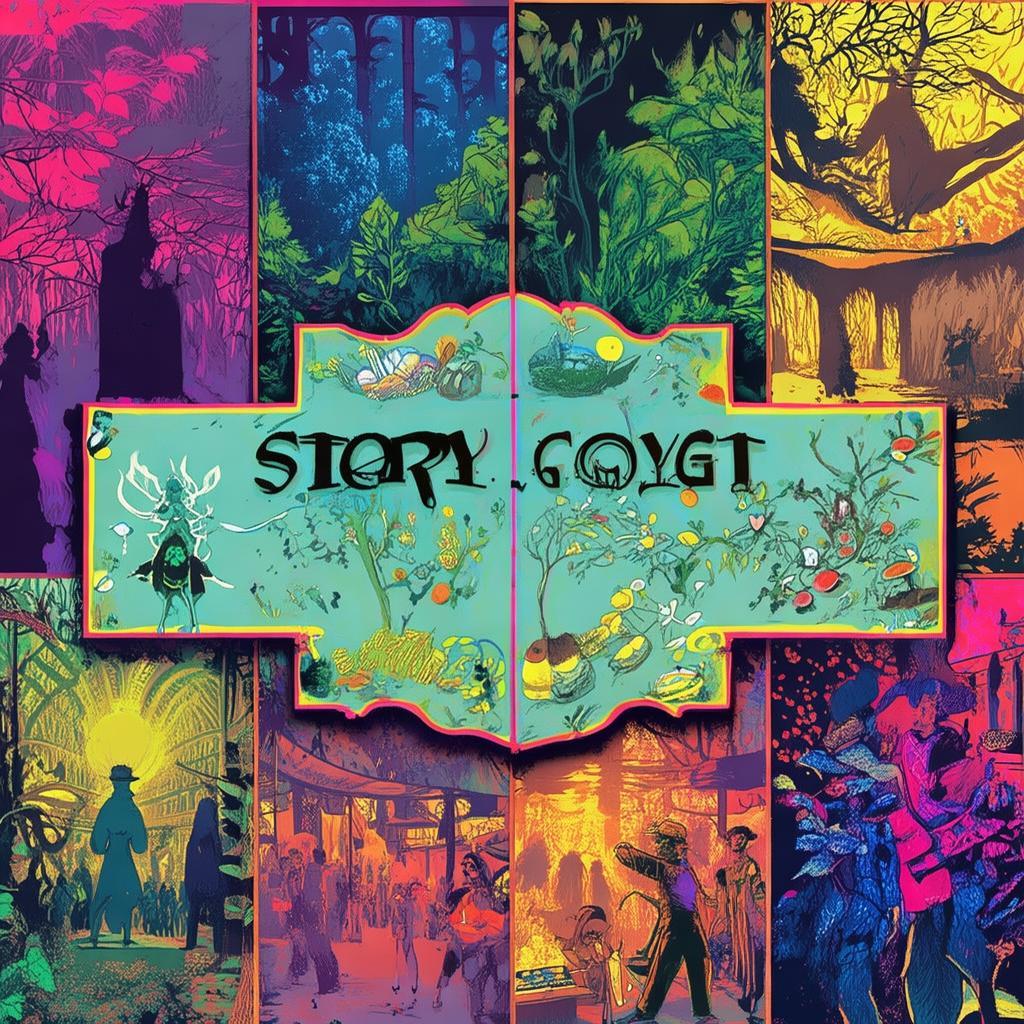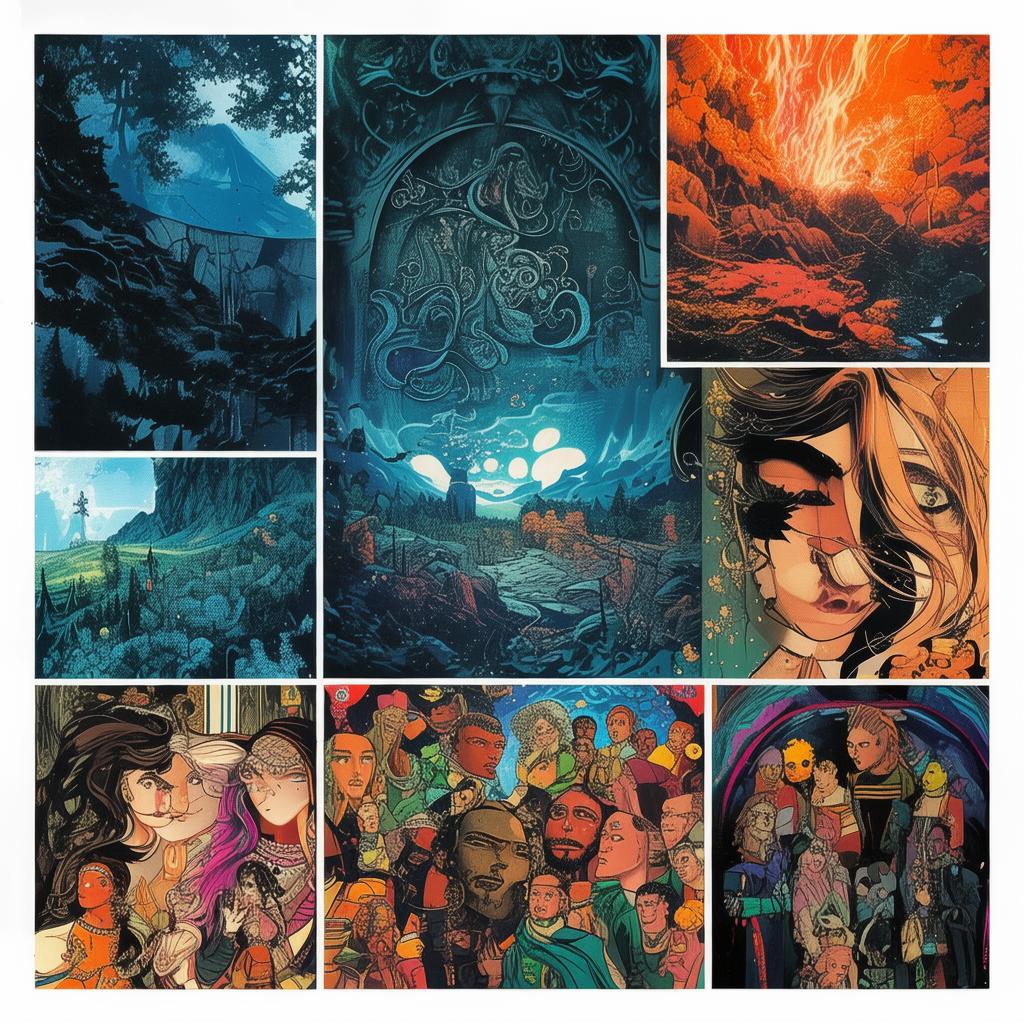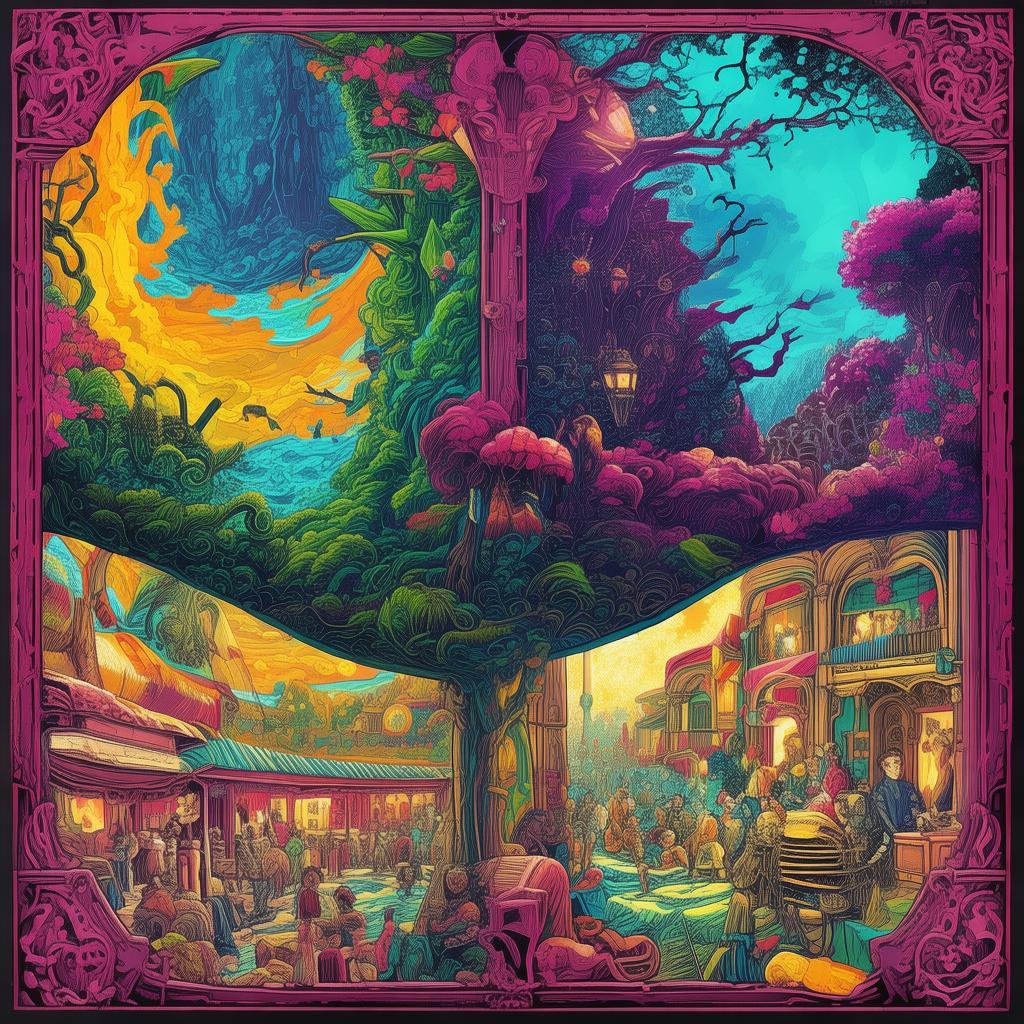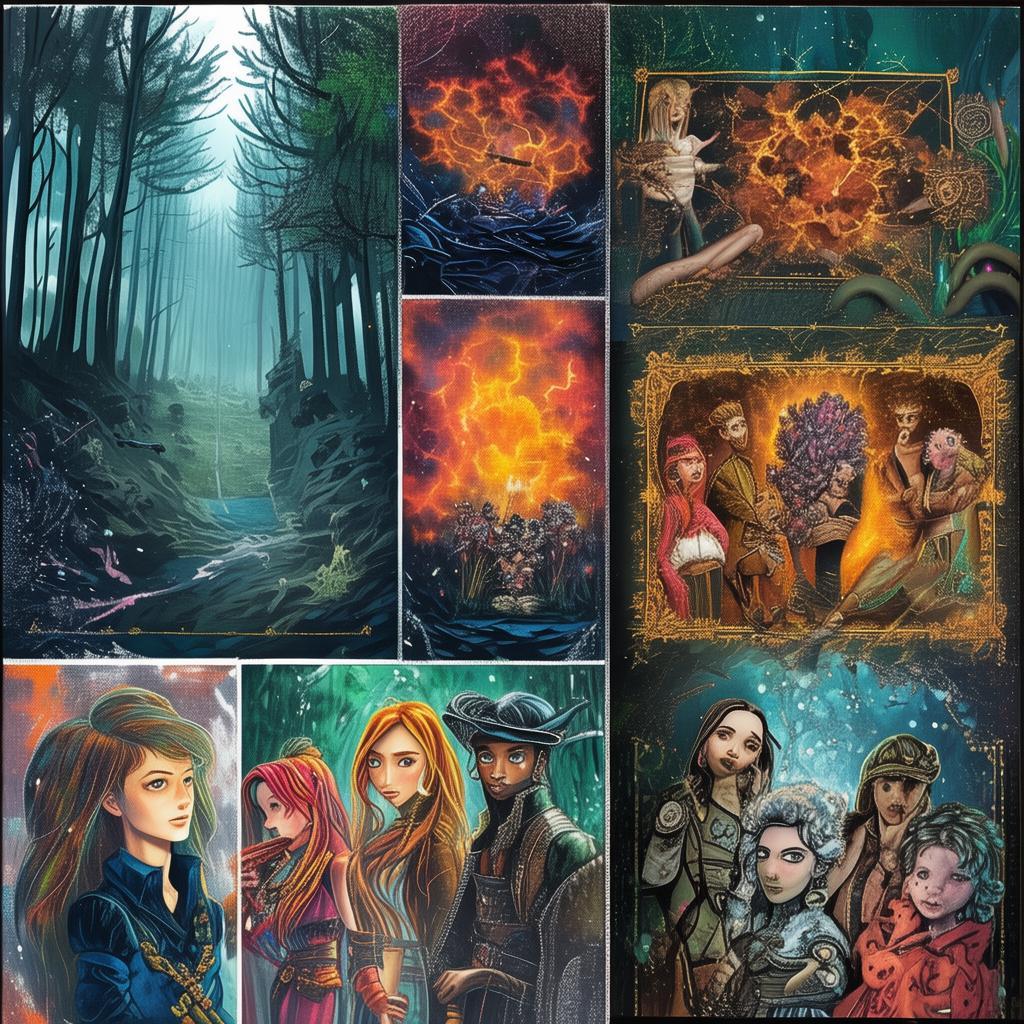The Laozi's Enigma: A Journey Through the Taoist Mysteries
In the bustling city of Chang'an, amidst the clatter of markets and the hum of carriages, there lived a young scholar named Ming. His name, as it happened, was as simple as his life appeared to be. He was a student of ancient texts, a lover of wisdom, and a seeker of enlightenment. Ming had spent years studying the classics, but it was the teachings of Laozi, the legendary sage, that captured his heart and mind.
Ming was well aware of the Tao Te Ching, the revered text attributed to Laozi, but it was the enigmatic nature of the teachings that intrigued him. They were riddles wrapped in riddles, and Ming felt an inexplicable urge to unravel the mystery that lay within. One evening, as the moon cast its silvery glow over the city, Ming found himself in the ancient library, surrounded by the scent of aged parchment and the whispers of forgotten wisdom.

It was then that an old man, cloaked in shadows, approached Ming. His eyes, though hidden behind a veil of obscurity, seemed to pierce through the young scholar's soul. "You seek the Enigma of Laozi," the man said, his voice deep and resonant, like the tolling of a distant bell. "Prepare yourself for a journey that will test the limits of your understanding and your resolve."
Ming, with a heart full of trepidation but a mind brimming with curiosity, nodded. The old man, known as Master Wei, led him to the edge of the city, where the path wound through a dense forest of ancient trees. The air was cool and crisp, and the night was alive with the sounds of nocturnal creatures. As they ventured deeper into the woods, the path grew narrower, and the trees seemed to close in around them.
Master Wei spoke again, his words like a guiding light through the darkness. "The Tao is a path without a destination, Ming. It is the journey that matters, not the end. You must learn to flow with the Tao, to embrace change, and to find peace in the present."
The first test came in the form of a riddle: "What is soft yet strong, yielding yet unyielding, and capable of overcoming the hard and the strong?"
Ming pondered the riddle, but it was Master Wei who provided the answer. "The Tao," he said, "is like water. It flows around obstacles, adapts to its surroundings, and always finds its way. The soft overcomes the hard not by force, but by wisdom."
As they continued their journey, Ming encountered more riddles and tests, each one challenging his understanding of the Tao. He learned about the importance of simplicity, the value of humility, and the necessity of letting go. He encountered spirits, both benevolent and malevolent, and he learned the art of balance, the harmony of yin and yang.
One night, as the moon hung full and bright in the sky, Ming found himself at the foot of a great mountain. The path ended here, and the mountain loomed before him, its peak shrouded in mist. Master Wei stood beside him, his eyes reflecting the glow of the moon. "This mountain represents the challenges you will face in life," he said. "You must climb it, not to reach the top, but to understand the journey itself."
Ming took a deep breath and began to climb. The path was steep and treacherous, and at times, he feared he would not make it. But as he climbed higher, he found his breath, and he found his balance. The mountain, he realized, was not just a physical obstacle, but a metaphor for the inner struggles he would face.
Finally, Ming reached the summit. He stood there, overlooking the vast expanse of the land below, feeling a sense of accomplishment and peace. Master Wei approached him, his voice filled with warmth. "You have climbed the mountain, Ming. Now, you must return to the city, to share what you have learned."
As Ming descended the mountain, he carried with him a newfound understanding of the Tao. He returned to Chang'an, not as a scholar, but as a sage. His life was transformed, his perspective forever altered. He shared the wisdom he had gained, and the people of Chang'an listened, their hearts filled with wonder and respect.
The Laozi's Enigma had not only provided Ming with knowledge but had also given him the strength to live a life of balance and harmony. In the end, the journey was not about reaching a destination, but about the process of growth and enlightenment that came with it.
✨ Original Statement ✨
All articles published on this website (including but not limited to text, images, videos, and other content) are original or authorized for reposting and are protected by relevant laws. Without the explicit written permission of this website, no individual or organization may copy, modify, repost, or use the content for commercial purposes.
If you need to quote or cooperate, please contact this site for authorization. We reserve the right to pursue legal responsibility for any unauthorized use.
Hereby declared.









